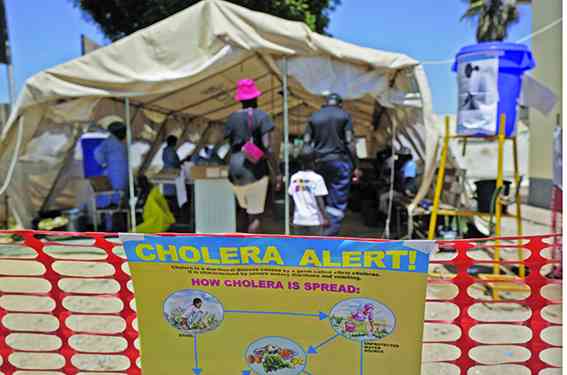
NEWLY-APPOINTED World Health Organisation representative to Zimbabwe, Desta Tiruneh, has expressed concern over some religious sects shunning cholera vaccines saying it hampered the fight against the waterborne disease.
Addressing journalists during a media cafe in Harare on Tuesday, Tiruneh urged the media to encourage vaccine uptake in the face of religious and social media disinformation against embracing vaccines.
He also said there was a need to do away with vaccine hesitancy.
“One of the issues that we noticed in the last campaign was some people or some section of the population, the community, for different reasons, either related to religion or whatever, or other conspiracy theories, do not want to take vaccines,” Tiruneh said.
“If we talk about medical advances, vaccines are the best things that have ever happened in the health sector. With a vaccine, you can prevent lots of deaths.”
Zimbabwe launched the cholera vaccination campaign in January this year with a target to vaccinate 2,3 million people.
The country has recorded more than 20 000 suspected cholera cases and more than 400 confirmed and suspected deaths since the campaign was launched.
Tiruneh gave an update on the impending cholera vaccination campaign where about 213 000 doses have been bought to scale up efforts to eradicate the mediaeval disease.
- Zim health system is in intensive care: How it got there
- Measles threat growing
- Take your child for measles vaccination
- Residents cry foul over Ngozi Mine pollution
Keep Reading
“Zimbabwe is preparing for a cholera vaccine, another round of cholera vaccine, for a small targeted area this time,” he said.
“The vaccine is going to be received (rolled out) soon. We do not know the exact date, but very soon we will do the campaign.”
Cholera is now endemic in Zimbabwe with recurrent outbreaks especially in the capital, Harare.
Cholera is an acute diarrhoeal illness caused by ingesting contaminated food or water.
It can lead to rapid dehydration if left untreated.
While treatable, the disease can be deadly, especially to young children and the elderly.









